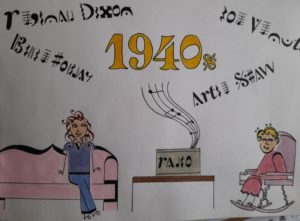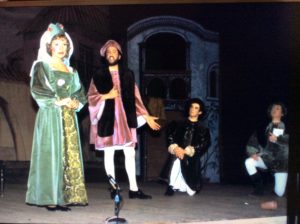
Louisa's Story
Louisa Bayliss became an Admiral Nurse in 2022. Here she tells us about life as an Admiral Nurse and the important part music plays in her personal and professional life.
Tell us what's involved in being an Admiral Nurse
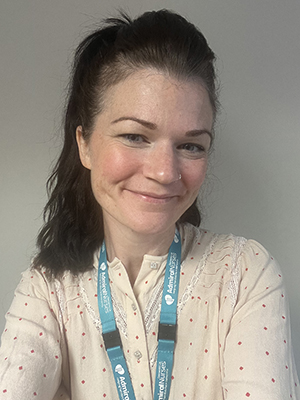
As Admiral Nurses we support the carers and loved ones of people living with dementia. Our focus is the well-being of the carer, enabling them in their caring role to cope with the emotional, physical and practical demands of caring for somebody living with dementia.
We are there for everything from emotional support to clinical advice, to the practical nuts and bolts of caring and strategies for them to get through each day and live well themselves.
We work in the community supporting people who often find themselves in a caring role unexpectedly. We help them adjust to their new way of living and adapting to a role they perhaps hadn’t planned for.
How did you come to be an Admiral Nurse?
We had a manager come on board who was also a learning disability nurse who I ended up working very closely with to push the dementia service forward and look more holistically at the care. I became very passionate about advancing dementia care and making sure that people with dementia were getting the right, individualised care like I was seeing in other sectors. From that experience I became really passionate about working with people with dementia and I never went back to anything else.
I then worked in care homes and loved supporting the families that came to visit, making their visits as good as they possibly could be and helping them to make connections whilst they were visiting. It’s really hard visiting people in care homes and there are so many emotions you have as a visitor. My mum lives in a nursing home after a significant stroke a few years ago and she now requires 24-hour nursing care. I know first-hand what it feels like as a visitor in a care home and finding it difficult to connect with the person you love.
I started to find myself in a sort of Admiral Nurse role in the care home where I worked, even though it wasn’t my role. I’d started taking people under my wing, I knew what information they needed and things they wanted to hear. I would set up a nice visit for them and sometimes music was often part of that. That was my journey to becoming an Admiral Nurse, which I’ve been doing now since January this year.
What part does music play in your personal life and your role in caring for carers?
For me, music is massively important. It’s part of who I am, part of my identity. From a young age music was a big part of my life. My mum used to sing all the time and my dad played a 12-string guitar. I can remember him playing the guitar and my mum singing “House of the Rising Sun”. I still hear some songs now and it takes me right back to hearing my mum plonking away at the piano and singing her heart out.
I carried on with the guitar and singing into my teens and into my twenties and I’ve been in a band doing both since then. I love that singer/songwriter genre – Cat Stevens, Eva Cassidy – those beautiful, heartfelt songs that you could really connect with are what fuelled my song writing and where I went with my music.
When I visit my mum, I play her things I’ve recorded, and she loves it. She loves hearing my voice – it really brings her alive. I’ve taken the guitar in to play to her and I used to play in the care homes when I worked there too.
When I played one-to-one with somebody, I would make a real connection, especially if I was singing a song I knew they liked or meant something to them.
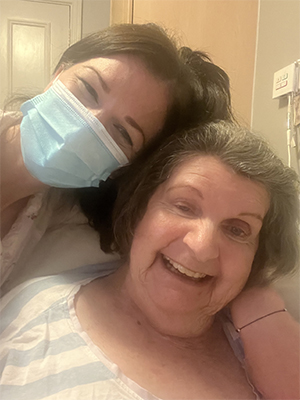
People living with dementia often experience very intact emotional memories, even when their memory for specifics such as a person, time, date or place may let them down. Using music can help people draw on those intact emotional memories – bringing back real feelings of love, safety, security, happiness, excitement – and this can bring them such comfort. The person living with dementia can escape the daily struggle of trying to make sense of the confusion of ‘real time’ events into an emotional and completely meaningful world which is familiar and comfortable for them.
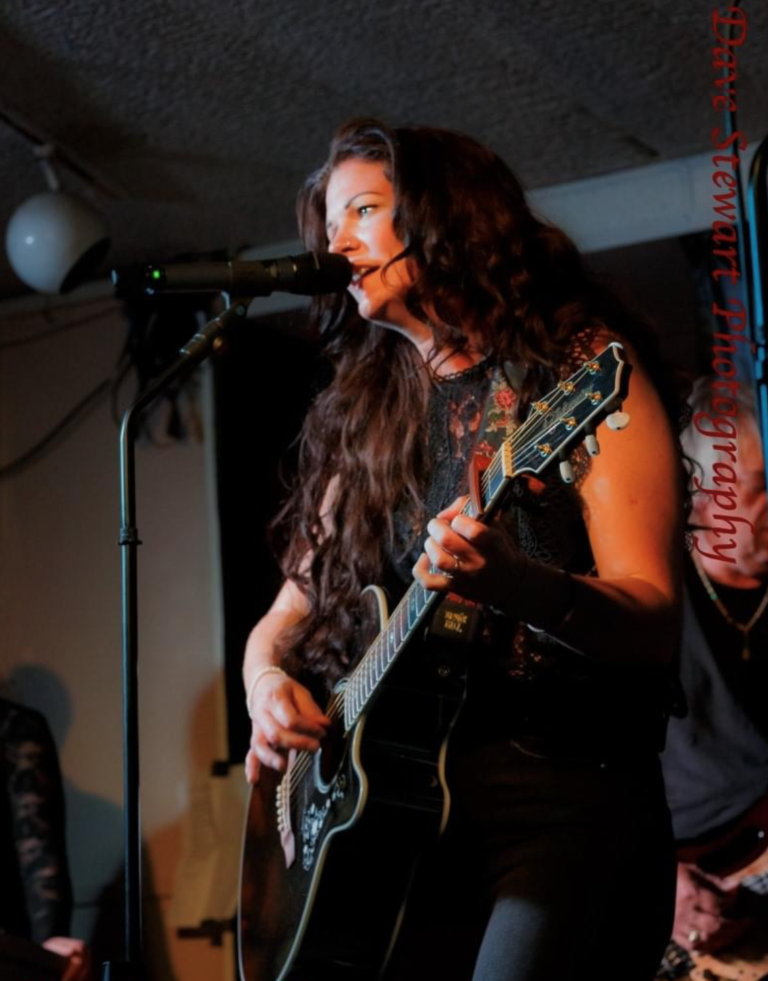
Is there an instance you can share where music has played an important part in someone's life, or in the care of someone living with dementia?
I’m currently working with a lady who is caring for her husband at home. He was experiencing some difficult symptoms where towards the latter part of the day he was becoming increasingly restless and agitated and she was finding this time of day really challenging. It’s a time of day where quite a lot is required of a carer; there’s the evening meal to prepare, perhaps getting their loved one washed and dressed for bed, as well as the daily tasks that need doing.
We talked about how at this time of day the lowering light levels can trigger this emotional response in people living with dementia, where they can feel more restless and have a greater need for feelings of security. We talked about ways we could make her husband feel safe like closing the curtains, popping some nice, warm lights on, locking the doors and making the house feel secure.
Then we talked about music and how they could use that together at this time of day. She said she’d tried it before but he hadn’t really listened as he was too busy moving things around the house at that time. She said she had some compilation CD’s their daughter had put together for him, so we went through them and she told me what the music meant to her and to them as a couple.
We began to put together a playlist with music that might give him some calmness at that time of day, including a song they used to listen to when they first met. As part of a holistic approach to his care, I suggested she use the music as well as the other strategies, like the lights, to create the environment he needed emotionally. She said she would try it and started to put the music on preceding the time of day that he would usually start to get agitated.
It’s now become part of their daily routine where they sit down and put the music on in the living room and have their tea on their laps there instead of the dining room. When I saw her the next time it had made a significant improvement to his sun-downing behaviours. In my current role that was the biggest breakthrough I’ve had using music.
What songs would be on Louisa's life playlist?
Billy Joel – “Piano Man”
Cat Stevens – “Wild World”
Ben Folds – “Landed”
Extreme – “Hole Hearted”
Eva Cassidy – “Cathy’s Song”
Steve Harley and Cockney Rebel – “Here Comes The Sun”
The Animals – “House of the Rising Sun”
Counting Crows – “Anna Begins”
Kings of Convenience – “I don’t know what I can save you from”
Dire Straits – “Romeo and Juliet”





